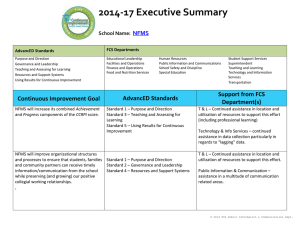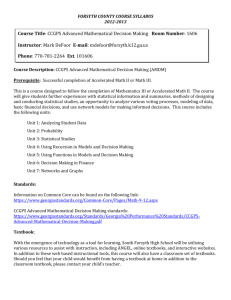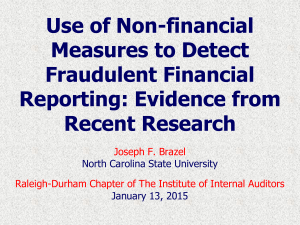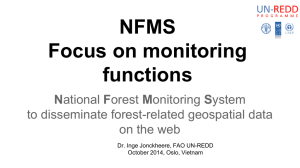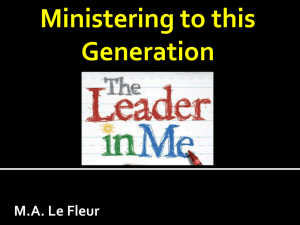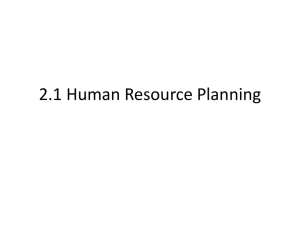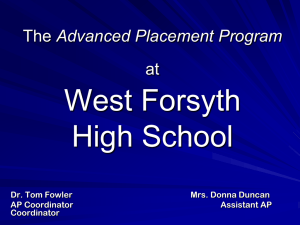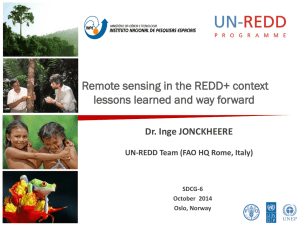Ex Summary, School Plan, and PL Plan
advertisement
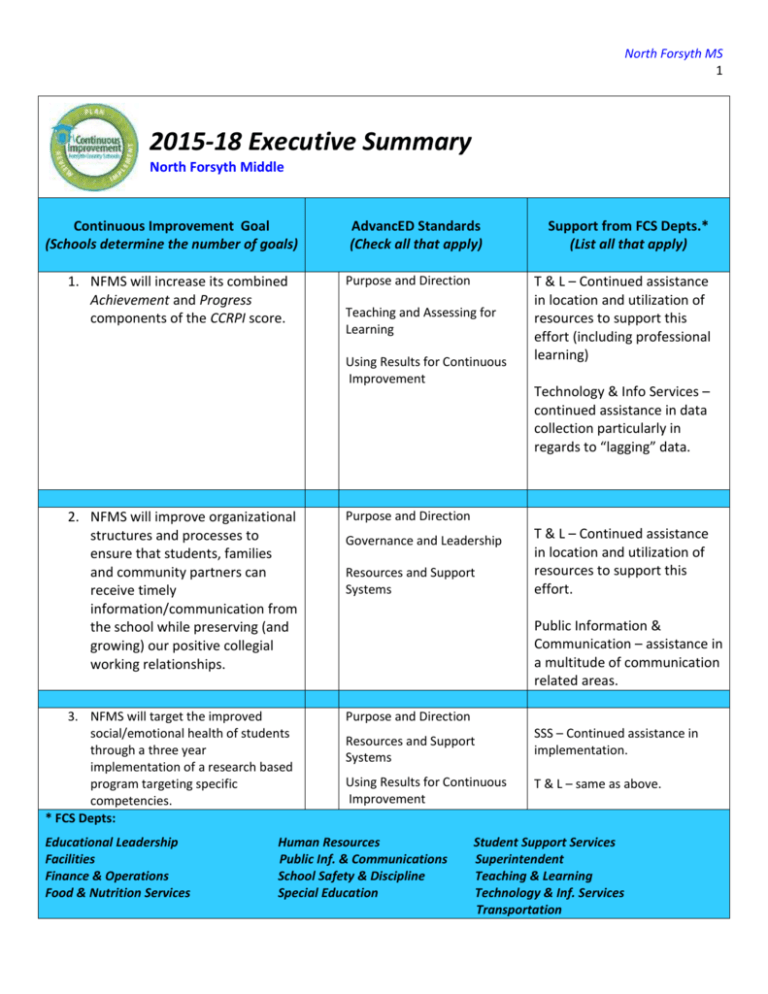
North Forsyth MS 1 2015-18 Executive Summary North Forsyth Middle Continuous Improvement Goal (Schools determine the number of goals) 1. NFMS will increase its combined Achievement and Progress components of the CCRPI score. AdvancED Standards (Check all that apply) Purpose and Direction Teaching and Assessing for Learning Using Results for Continuous Improvement 2. NFMS will improve organizational structures and processes to ensure that students, families and community partners can receive timely information/communication from the school while preserving (and growing) our positive collegial working relationships. 3. NFMS will target the improved social/emotional health of students through a three year implementation of a research based program targeting specific competencies. * FCS Depts: Educational Leadership Facilities Finance & Operations Food & Nutrition Services Support from FCS Depts.* (List all that apply) T & L – Continued assistance in location and utilization of resources to support this effort (including professional learning) Technology & Info Services – continued assistance in data collection particularly in regards to “lagging” data. Purpose and Direction Governance and Leadership Resources and Support Systems T & L – Continued assistance in location and utilization of resources to support this effort. Public Information & Communication – assistance in a multitude of communication related areas. Purpose and Direction Resources and Support Systems Using Results for Continuous Improvement Human Resources Public Inf. & Communications School Safety & Discipline Special Education SSS – Continued assistance in implementation. T & L – same as above. Student Support Services Superintendent Teaching & Learning Technology & Inf. Services Transportation North Forsyth MS 2 2015-16 School Improvement Plan North Forsyth Middle Continuous Improvement Goal: I. NFMS will increase its combined Achievement and Progress components of the CCRPI score. II. NFMS will target the improved social/emotional health of students through an initial implementation of a researched based program targeting specific competencies. . SMART Goal: I. II. NFMS academic teachers will complete a Data Teams process on at least one assessment per semester. Assessments will be identified by subject and grade level and will conform to one of three types as outlined in the Action Steps NFMS staff will see positive gains in student “emotional inventories/competencies” after implementing a research based program targeting successful mindsets. Actions, Strategies and Interventions (Includes Prof. Learning Plan) I. II. All Academic staff will implement at least one of the three following types of SMART goal measures for Data teams: 1. Whole Test Improvement – pre to post with targeted individuals/standards (“classic” SMART goal). 2. Student Growth Measure – SLO Methodology applied to Pre/Post. 3. Targeted Standards/skills within summative assessments – ID skills applied to pre/post . All Staff will implement the 7 Mindsets program at a minimum of two twenty minute lessons for 24 weeks. Impact on Student and Adult Behavior (“If…then...” Statements) If teachers implement a data teams process (with particular emphasis on the major units selected), then student achievement rates will improve at a minimum of targeted goal levels. Timeline August 2015 – May 2016 If teachers implement the lessons with fidelity and on regularly scheduled basis, then student emotional competencies (which are admittedly hard to measure) will improve. Continued Professional development in differentiation, IT’s resources (and general LMS utilization). All staff share in responsibility August 2015 – May 2016 Describe how your SMART Goal will be monitored throughout the year: I. Resources Needed? Who is Responsible? Goal 1 will be measured with the collection of three artifacts. All staff share in responsibility North Forsyth MS 3 1. Semester Assessment Maps which ID exams utilized for the Data Teams Process. 2. Subject area Debrief notes (minutes of subject area meetings) 3. Data Rosters which compile and calculate data to highlight attainment (or continued growth areas) for students/classes. II. Goal 2 will be measured with the collection of two artifacts. 1. Perception data (pre/post) collected from students. 2. Tracking of observation/lessons implemented 2015-16 Professional Learning Plan North Forsyth Middle Professional Learning Goal(s): NFMS Strives to fully implement the data teams process across academic disciplines and a research based program targeting the social/emotional health of students in order to promote individualized learning and instruction; thus improving student achievement and happiness. Connection to Continuous Improvement Goal(s): Close connections to goal 1 & 3 – continued work in goal #2 will aid in attainment. Date July 30 Pre-Planning July 31 Pre-Planning (District) August 3 Pre-Planning August 4 Pre-Planning August 5 Pre-Planning September 2 Early Release/Prof. Dev. (District) October 23 Prof. Dev. Day (District AM/School PM) January 4 Prof. Dev. Day (School) February 16 Prof. Dev. Day (District AM/School PM) May 31 Post-Planning June 1 Post-Planning # Hours 8 4 Description of Learning Activities Orientation, Data Review, Grade Level Collaboration and Charge for year, TKES Orientation DCD Sessions 2.5 Camp Wildcat (6th grade orientation and preparation for 7th and 8th orientation) Assessment Calendar/ Mapping Session, Initial 7 Mindsets training. Safety Planning, First Responder (CPR, Epi-pen, AED..etc.), Mandated Reporter Training (& various Nuts & Bolts) District Sessions 2.5 District Initial Differentiation Training 4 2nd Semester Assessment Mapping, Data Review 8 4 DCD (Differentiation part 2), school – revisit implementation of 7 Mindsets. TBD 0 Review and Celebration 0 8 4 North Forsyth MS 4 August - May TOTAL HOURS: Approx. 20 60* TLC Sessions (Teaching – Learning – Collaborating) Traditionally held on Wednesdays during grade level planning. Subjects will include: 7 Mindsets Differentiation Milestones review TKES updates, orientation Effective Questioning techniques LMS utilization Personalization HOST of other topics Approximate
